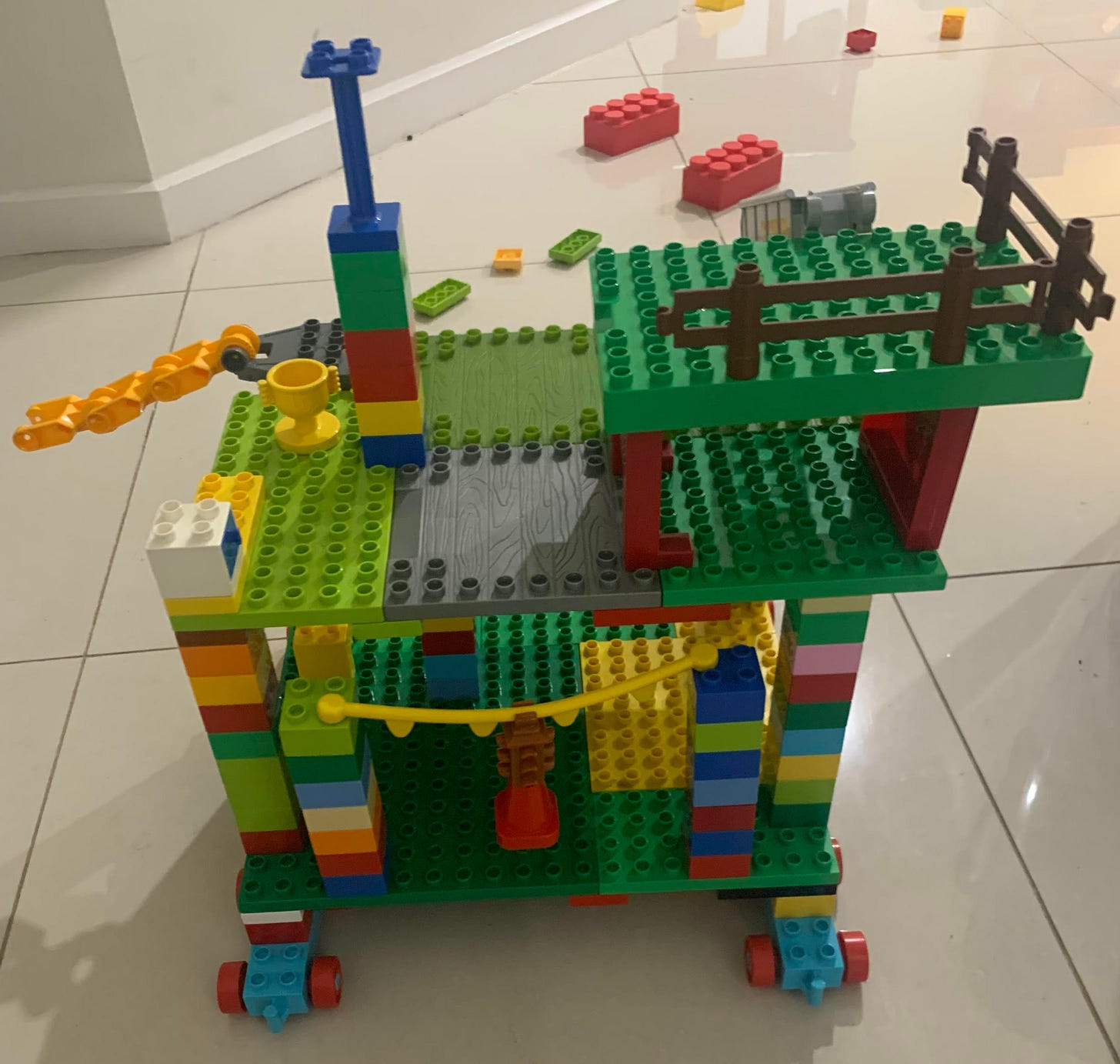It’s that time of year again when many countries around the world are on a school break.
In the northern hemisphere, it's summer holidays for many, while in the southern hemisphere — like here, in Australia — many are in a shorter winter break.
This Substack has readers from over 40 countries — comment below and let us know: is it break time where you are? ❄️☀️
This week, I’m reposting a post from this time last year.
Neurodivergent children and holiday schedules
Under seemingly unending grey clouds, Sydney has dripped into winter school holidays.
When we lived in the north of France (until a couple of years ago), we knew this as the clear-sky time of year, when days would surprise us with sudden afternoon bursts of heat, and conversations would revolve around plans for the two-month summer school holidays ahead.
No matter the weather, holidays often mean one thing to many neurodivergent people: chaos. Some children may exhibit anxious behaviour and more emotional dysregulation, even if they are also relieved to have a break from school.
A 10 year old autistic girl tells me what makes her stressed:
“When I am on holidays and everything is different, I get worried because I don’t know what we will do all day… I don’t like weekends because I don’t know what will happen each day. I wake up feeling worried and then I worry because I am worried! I like school because I know what will happen each day.”
How can families help their neurodivergent children adjust to all the changes that accompany time away from school or the home-school routine? In this article, we’ll hear from neurodivergent people and from parents of neurodivergent children.
What helps you relax?
For me, I love the free-flow of unplanned days, when anything is possible. My husband and one of my children love that too… But two of my children are quite the opposite!
My eldest daughter (who is autistic) describes it like this:
“I find comfort in routine and plans, so when holidays are coming, I like having a plan for the days ahead. It helps me relax. Without a plan, I feel a sense of uncertainty, like anything could happen at any time. A plan gives me time to gather strength for the more tiring things and look ahead to know that there’s untouchable recovery time planned after those things.”
Do schedules help members of your family relax?
When the members of the family have different needs
Before each holiday time, I encourage reflection, conversation, and discussion about incorporating flexibility so that children can have some input into the planning. This can help your plans meet their needs, and prepare them for the level of flexibility that is appropriate in your situation. Some holidays will require one thing, other holidays will look different.
Anna* tells me that they have a schedule just for their autistic daughter, not for their other children. She says,
“[My daughter] needs more accommodations otherwise she is easily overwhelmed... She needs a more explicit schedule than our other children. For example, she needs a schedule of our day even when we go on holidays, which our other children do not need.”
In my family, we all mostly follow the schedule. Two children enjoy the safety of the schedule, and one enjoys adding to it for herself, jumping at the chance of an unplanned outing. If both parents are around, one parent will take her for spur-of-the-moment outings, but not put any pressure at all on the other children to join in.
For single parents or when only one parent is home, consider asking friends if they can help. I know a family who sends one of their children along to do grocery shopping with friends. It’s not a play date, but it’s an easy outing, it adds something to one child’s schedule without overloading the schedules for the others.
What do the members of your family prefer?
What to include in a holiday routine
Building a holiday routine together is a great opportunity to encourage reflection and self-awareness for those children who are able to learn and practice these skills. It’s a chance to acknowledge everyone’s different needs. If you create a schedule, display it where everyone can see it. Visual cues, such as drawings or photos, are helpful for many children, even if they can read.
For our family, we like to build a holiday routine beginning with the familiar things that are part of life. This includes meals and personal care (cleaning teeth, showering/bathing, getting dressed, brushing hair).
Jane*, the mother of a son with global developmental delay and ADHD tells me,
“Schedules and visual cues around the house help [my son] a lot. He has a morning routine chart to help him remember all the things he needs to get ready.”
Would a chart like this be a helpful addition to your holiday routine?
The next step will probably vary a lot for each family, but for us, our children find it easiest to only have one out-of-home activity per day on most days, and this is best for them if it begins in the morning, when possible. For us, this reduces anticipation and gives time at the end of the day to recover. We like structure with some ambiguity, so for most days we write and visually depict simply “activity” on our daily routine for the morning and “home” for the afternoon. Some days will have more detail than this, other days we are free to plan in the morning exactly what those categories entail. Some families, however, will need more detail in each section.
Would more detail in your holiday plan be helpful for your children?
Whatever you plan, it is important to balance energy sappers with varied energy replenishers throughout the day.[1] (See my article on energy here, my four articles on adapted homes starting here, and my article on co-regulation for paid subscribers here).
What if there are changes to the routine?
Change is knitted into the world, but for some, change is hard. How do you help your neurodivergent children to prepare for, and cope with, sudden change to schedules?
Susan*, mother of an autistic daughter, says,
“We need to make sure we never change the holiday routine for now, holiday routines are fairly new for us so we need to first establish safety in the routine so relaxing time can feel safe and difficult activities (like going to a playground) can feel contained.”
A family with an AuDHD (autism+ADHD) son, tells me they are carefully
“Building rhythms and routines which not only support [our son], but also reflect biblical principles and God’s order. But, we also practice randomly incorporating positive changes (e.g. one-off McDonald’s dinner/ mid-week movie night etc) in order to teach that change and flexibility can be good and enjoyable.”
Anna*, quoted above, reflects on this tension, she says life runs happily with
“Schedules, schedules, schedules! Planning, planning, planning! This is exhausting for us all, but without it we pay a price. Even on holidays we need to run to schedule.
Our kids like to surf and one day we went to the other end of the beach because the waves were better, and [our daughter] had a huge meltdown because it wasn’t what she was expecting. We have to prepare her for any possible minor change like that. We talk most days about needing to be prepared to be ‘flexible’ but we need to be mindful that asking her to be too flexible builds up to meltdowns.”
If an unplanned activity pops up, it might help to take time to work out with your child/children what the energy cost of the change will be and what they need to do replenish their energy afterwards (see my article on energy balance here). After the change, some children will also need a day or more of carefully keeping the routine to re-establish their feeling of trust in the routine.
Enjoy the break!
How are you feeling about the holidays? Take time to talk to God about it before, during, and after. He cares! Remember the words of Philippians 4:6-7,
“Do not be anxious about anything, but in every situation, by prayer and petition, with thanksgiving, present your requests to God. And the peace of God, which transcends all understanding, will guard your hearts and your minds in Christ Jesus.”
Build in some things that will help you relax too, even if you can only find small moments, use them: some deep breaths, some Belgian chocolate, three minutes with a skipping rope, reciting a verse, singing, praying… don’t forget that you need a break too!






